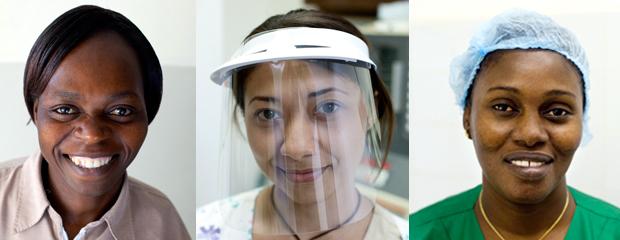Where We Work
See our interactive map


Margaret Ofisi (left) is a nurse at Lugari District Hospital in Kenya. Nearly 8,000 miles away, Monica Cho (center) works as a medical technician at Manuel Amador Guerrero Hospital in Colón, Panama. And across the Atlantic Ocean, Dr. Toly Ly Thiam (right) serves patients at the Centre de Santé in Mbour, Senegal.
These are just three of the vast number of women caring for their communities around the world. As the World Health Organization puts it, “Health systems depend on women as providers of health care1.” The WHO goes on to describe inequalities within the formal and informal health sectors:
The backbone of the health system, women are nevertheless rarely represented in executive or management-level positions, tending to be concentrated in lower-paid jobs and exposed to greater occupational health risks. In their roles as informal health-care providers at home or the community, women are often unsupported, unrecognized and unremunerated.
On International Women’s Day, join us in supporting women health workers. Learn more about our work with gender equality, watch this one-minute video, then get involved with IntraHealth. Because health workers save lives.
A few notes:
—Sarah Dwyer
1World Health Organization. 2009. Women and health: Today’s evidence, tomorrow’s agenda. Executive summary. Geneva, Switzerland: World Health Organization. http://whqlibdoc.who.int/hq/2009/WHO_IER_MHI_STM.09.1_eng.pdf.



